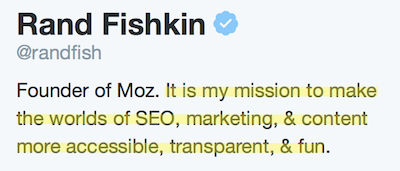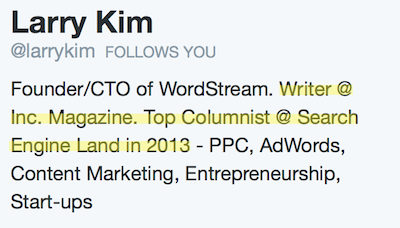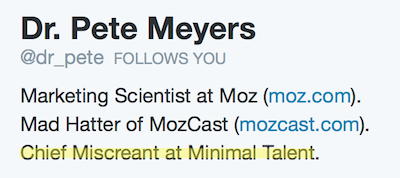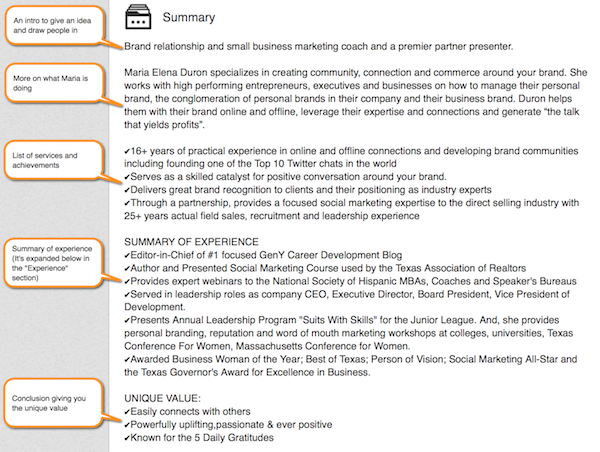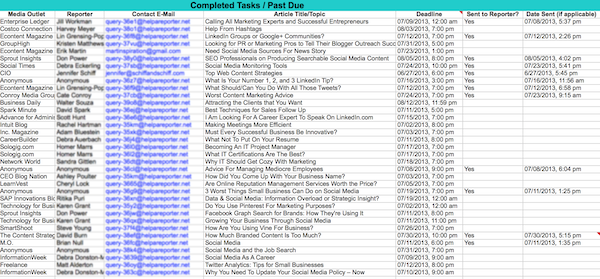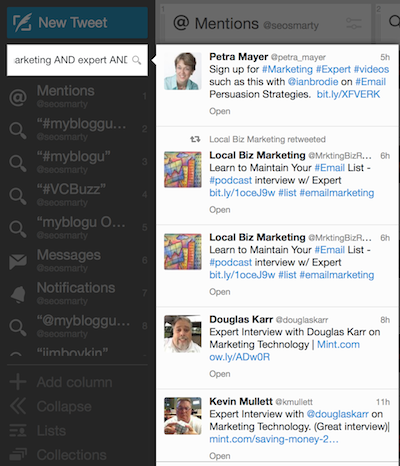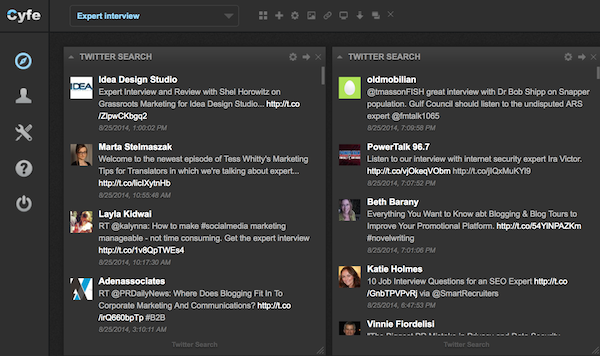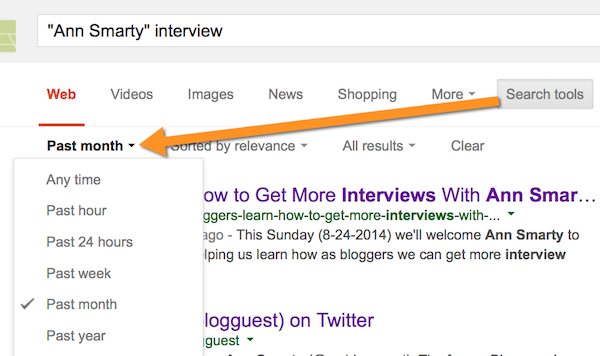Stings, doesn’t it?
Whenever a popular blog quotes an expert in your niche, you feel a little pang of envy.
And you can’t help thinking…
Why not me?
And it’s a good question.
Why did that person get asked for their opinion and not you?
After all, they’re no smarter than you. No more experienced than you. No more interesting than you.
But for some reason they received that call (or email or tweet) instead of you.
Which means they earned yet another mention on a popular blog, while you’re left feeling like a nobody.
And you start to wonder…
Why do the same small set of individuals crop up time and time again online?
Do they all belong to some secret experts club that gives them access to all the best opportunities?
And if so, how do you get to be a member?
The Frustrating Catch-22 of Becoming a Featured Expert
Consider the following situation.
A popular blogger wants to interview a group of experts on a hot topic and publish the results on their blog.
Naturally, one of the first steps is to compile a list of people to ask for a quote or two. (The same list you’d love your name to be on).
Usually, the first people they add are those they know personally.
But after that, can you guess where they find names to fill out the list?
Other expert interviews.
That’s right, to have a good chance of being invited to participate in an expert interview, you need … to have participated in an expert interview somewhere else.
Somewhat frustrating, right?
When you first start a blog, how on earth do you break into that circle?
How do you overcome this frustrating catch-22 situation?
Don’t worry, there is a way.
But first, let’s take a look at exactly why becoming a featured expert is so powerful for you as a blogger.
How Expert Interviews Can Transform You from a Nobody into a Somebody
Appearing as a featured expert in a group interview on a popular blog is one of the most efficient ways to raise your profile and gain authority online.
The following are just some of the benefits:
- Increased exposure – You build your personal brand and raise your visibility in your niche (which results in more followers and mentions).
- Greater authority – Your quote appears alongside recognized and trusted experts, which brings powerful authority by association.
- Valuable links – You build powerful editorial links from established blogs, which also generate referral traffic* (and may result in long-term SEO benefits).
- More opportunities – As explained above, experts featured in popular interviews are often among the first chosen for future round-ups and other projects (that’s the rich-get-richer concept).
*Here’s a good example to prove my point: My good friend and partner Gerald Weber mentioned our site Viral Content Buzz in this interview, and that article is now the third most important source of referral traffic.
Expert Interviews 101: Know Your Interview Types
The expert round-up is one of the most common interview types, but they come in lots of different shapes and sizes.
Some blogs get really creative in the way they feature niche experts and their quotes, but the following are the major formats you’re likely to encounter:
- Solo interview – One recognized expert does a question-answer interview. (Here’s an example from TechWyse.)
- Group interview – A group of experts answers the same questions thus giving the reader the opportunity to compare and contrast different perspectives and opinions. (Here’s an example from SEOChat.)
- Group round-up – Several contributors share their favorite tactic or tool to solve one problem or answer one question. (Here’s a recent example from Social Media Examiner.)
But in practice, expert interviews are not limited to blogs. Other interview types include:
Twitter Chats (or Twitter Interviews)
Twitter chats use hashtags to organize a public discussion on Twitter.
Twitter chats expand your reach dramatically because followers of all the chat participants are able to follow the conversation and contribute as well.
Also, Twitter chats are often covered elsewhere in the blogosphere, which results in even more mentions. (Here’s an example.)
Here’s a detailed article on how Twitter interviews work. For examples of regular Twitter chats, take a look at this calendar I created for the chats I often participate in. Here’s another calendar by Brian Fanzo @iSocialFanz.
Google Hangouts on Air
Another way to boost your expert brand and mentions online is to get invited to a popular Google Hangout on Air (HOA).
The Hangout Events Community is a great place to discover a Google HOA show to participate in.
Social Media AMAs (Ask Me Anything)
These are usually initiated by the interviewee: you post a separate thread on social media inviting people to ask you anything. Of course, it helps if you already have a bit of a following online.
In social media and marketing, the most popular AMAs are held on Reddit and Inbound.org.
In most cases, they are set up with the help and supervision of the community moderators, so before trying to create one, it’s best to visit a few AMAs and ask questions to get a better feel of how that works.
AMAs are awesome for brand recognition as well as for traffic. Here’s one I did on Reddit.
Podcasts
Podcast interviews get lots of coverage too.
Blog Talk Radio is the first obvious resource for making those important connections to get invited to podcasts. Webmaster Radio is another one to keep an eye on.
Which Interview Types Are Right for You?
The most effective interview types for you will depend on your preferences and strengths. If you prefer speaking to writing, podcasts may work better for you. If you’re already active on Twitter, getting involved in a Twitter chat may be a natural choice.
But whichever type of interview you choose to experiment with, the million-dollar question is:
How can you score valuable interview opportunities if you don’t already have a track record of being interviewed?
Here’s a three-step strategy to land your first opportunities.
Step #1: Make Sure Your Digital Footprint Shouts “Expert!”
When you’re being considered as an invited expert, one of the first things an interviewer will do is check you out online, so you need to make sure your digital footprint (website, social media profiles, etc.) leaves a great impression.
Create an About Me Page That Kicks Ass
Having a professional (but importantly, human) About me page is the first step to getting people who find you online to pitch you for interview opportunities.
I did a group interview asking some of my favorite personal branding experts how people can improve their on-site About Me page, which produced some of the following great suggestions:
- Make sure your bio page is clearly and logically structured. There should be a short intro summing up your experience, a list of topics you consider yourself to be an expert in, and a list of your notable achievements, jobs and mentions. Demian Farnworth’s bio is a great example of a clear, convincing structure.
- Always include links to your social media profiles. I can’t tell you how many times I’ve checked someone’s bio page and failed to locate those important links. This may sound obvious, but your on-site bio page should work as the ultimate reference for where people can find you, including any active social media accounts.
- Make it clear that you’re available for interviews. Most people miss this. Be sure to say what types of opportunities you’re interested in – for example, contributing articles, participating in expert interviews, providing quotes – and list your favorite topics to talk about. As part of your well-structured bio page, it’s a smart idea to create a highly visible “I am open for” and “Here’s how to get in touch with me for these and other opportunities” sections.
- Tell your story. People love connecting with people who have interesting stories. (What’s your background? Tell some anecdotes!) Keep in mind, your unique story is the major reason why you will be interesting to bloggers and publishers.
- Make sure you’ve got basic SEO covered. In other words, the title tag should contain your name – use some basic schema.org markup to make it search engine friendly. Here’s a concise list of best on-page SEO practices that you may want to apply to your bio page to get it well-ranked for your own name in Google and Bing search results. Linking to this page from other pages on your site and from your contributor bylines will give it extra visibility, and it’s also a good way to get it ranked higher in search engines.
- Share what other people are saying about you. Social media testimonials work great for that, and Jason Acidre’s page is a good example of using Twitter testimonials to full effect.
- Be creative to stand out from the crowd. For instance, you could add some creative visuals that give readers essential information about you in a more fun way – Neil Patel’s page is a great example of this:
Ramp Up Your Social Media Profiles
In addition to your bio page, you should also make the most of your social media bios.
Twitter has a word limit, so you should be concise but detailed (without being spammy). Personally, I don’t like Twitter bios that contain only hashtags or list projects and interests.
(You could also try adding power words to your bio to help it stand out.)
Here are a few examples of professional Twitter bios you might emulate.
Rand Fishkin’s bio mentions his core interest and his professional motto:
Larry Kim’s bio lists his professional achievements:
Dr. Pete’s bio adds a touch of humor that makes it hard to miss:
Your LinkedIn bio should primarily highlight your professional experience. In my view, the more detailed here, the better.
Maria Elena Duron’s LinkedIn profile is a perfect example of LinkedIn personal branding done right. It’s detailed, clearly structured and summarizes her expertise brilliantly:
Google Plus has two places where you can talk about your expertise and experience:
- Your Tagline – This is an important section because the first part of your tagline (36-44 characters or 286 pixels) is displayed on your Google+ Hovercard, which is visible in many places around the network.
- Your “About” section – This has no word limit and supports simple formatting (bold, italics, hyperlinks), so you can go into as much detail as you like. Stephan Hovnanian has an awesome G+ “About page,” for example.
Step #2: Get Proactive About Finding Interview Opportunities
You’ve whipped your various public profiles into shape so that they give the right impression to any bloggers or reporters who happen to stop by.
Unfortunately, that’s usually not enough to start the interview offers pouring in – you need to proactively go after them.
However, once you get some momentum going, and people see your quotes being featured around the web, the opportunities will start to find you.
That’s the rich getting richer money-making thing again. But to take advantage of it, you need to get the ball rolling first.
The following are some ways to do just that.
Leverage Platforms that Connect Interviewers with Experts

HARO (Help A Reporter Out) is an established platform that connects reporters to potential sources. Once registered, you receive emails twice a day listing people who are looking for quotes – and if you have the required expertise, you can respond.
Be aware that this service does present a couple of challenges:
- More often than not, you won’t hear back from the reporter – even if they use your quote.
- Keeping track of submissions is time-consuming and hard to scale past a certain point.
These problems can be eased with an Excel spreadsheet. Record every request you respond to, and then once a month (or bi-weekly) revisit the relevant blogs to see if that topic has been covered (and whether your quote was used).
It does take a little effort, but knowing where you’ve been featured is important because you can help promote the piece for more exposure.
You can use a custom spreadsheet like the following to track HARO submissions (download a copy here):
To find out more about HARO, read this detailed tutorial. You can also learn about the different types of HARO requests and how to deal with each.

MyBlogU [Disclaimer: I am a co-founder] is another platform facilitating group interviews, which is geared toward blogging and community building.
You can browse existing interview requests, choose which ones you’d like to respond to and submit your answers.
It doesn’t require in-depth expertise on the listed topics as it’s more for collecting opinions rather than professional quotes.
I never thought of myself as an "expert", but I now realise people want to hear what I think :)- must mean I *am* an expert #myblogu
— Phil Turner (@EP_pturner) August 14, 2014
MyBlogU is more time-efficient than HARO because it sends you an email when your answer is published, ignored or past its deadline, making it easier to follow up on your successes.
For a more complete list of options, try this list from Everything PR; just be aware that results may vary!
Use Twitter to Find Breaking Opportunities
Twitter is my main source of news and trends in my industry. I wrote a detailed article on using TweetDeck to stay on top of my Twitter feed and mentions from other users, and the same search and tracking tips can be used to find the latest interview opportunities.
For instance, I’m using the following query to find interviews within my niche:
[marketing AND expert AND interview]The great thing about TweetDeck is that you can set any column to send updates to your desktop, which means you can be among the first to reply to a public request.
If you want to experiment with different Twitter search queries and various keywords, I suggest using Cyfe (Freemium), the great social media dashboard where you can create different widgets with all kinds of Twitter search variations you are playing with:
Find Potential Targets by “Slipstreaming” Prominent Experts
One useful way to find opportunities is to watch other experts in your niche to see where they are being featured – these same blogs may love to feature you in a future interview.
Start with the names of a few influential people in your niche (or a neighboring niche) who’ve been included in prominent interviews and try to find other places they’ve been featured.
Searching Google for [“Author Name” interview] is one option. (You can also filter results to show you the most recent and fresh ones).
Another great tool is BuzzSumo, which lets you filter results by “interviews” and, more importantly, it allows you to “Save any search” to easily access it again and/or export any results to Excel.
I am using this tool to both search by author…
…and search by keyword to keep track of various opportunities in my industry:
Think Laterally to Expand Your Search Beyond the Obvious
For some sites, interviewing experts is the whole business model. That’s all they do, and it’s all their readers are interested in.
They’re easy to find too – just Google: “[topic] interviews” (for example “blogging interviews”).
However, that’s part of the problem. If they’re easy for you to find, they’re easy for other people in your niche too.
So it pays to think beyond your profession. Think about your original and personal experience, your unique perspectives or your unusual ways you’ve tackled problems in the past.
The following are some examples of sites that interview people fitting a particular profile:
- Entrepreneur on Fire features inspiring entrepreneurs (be sure to check out Jon’s interview here).
- Learn to Code With Me – Women in Tech interviews female entrepreneurs.
- Lewis Howes loves to interview people who’ve built something great.
- Mixergy features interviews with founders.
- Woman In Leadership interviews – you’ve guessed it – women in leadership roles.
Searching for these kinds of opportunities, you are likely to discover lots of ways for you to tell your story and position yourself as an expert.
The actual search terms will depend on your personal background and skills. For example, as someone who built a business while being a stay-at-home mom, I would use the following combination of search terms:
- [productivity interview]
- [work at home mom expert interview]
- [woman entrepreneur interview]
- [WAHM expert interview]
- [life work balance expert interview]
You can get even more creative by replacing the [(expert) interview] above with all kinds of related terms: , [insights], [ask an expert], [Twitter chat], etc.
Step #3: Make Your Expert Pitch – and Close the Deal
The previous section should have given you lots of ideas on how to find bloggers who would be willing to interview you.
Now, let’s talk about how to approach – and land – any opportunities you may discover.
How to Craft Your Irresistible Pitch
Landing an interview starts with letting the right people know that you’re willing to be interviewed.
I’d recommend kicking things off with an email. Whenever you feel like you could be a great fit for the expert interview, go ahead and email the blogger.
Opinion is divided on how to best reach out to a blogger or a publisher. Some PR pros will suggest being as detailed as you can, explaining your background and expertise upfront to convince the blogger why you are the perfect interviewee. Others recommend being brief and to the point, which is my preference.
The following are some best-practice tips based on my own experience of being on both sides of the equation (i.e., as someone pitching for interviews and receiving pitches from others):
- Use the blogger’s first name. You may need to check a few linked social media profiles to make sure you have it correct.
- Keep your email brief. After the opening salutation, the perfect pitch email is just two lines long (not including the line with the name and the polite closing line). The first line explains why you’re getting in contact, and the second explains why you think you are a good fit for that.
- Limit the number of links. One link (to a relevant resource) in the first email is more than enough; otherwise you risk your email getting trapped by a spam filter.
Here’s an example pitch:
I’d like to nominate myself for your “Frugal living interview” series.
I advocate sustainable living all over the web, including my personal blog: www.myblog.com
Please let me know,
Ann
- Follow the blogger on social media. This shows you’ve taken the time to go beyond a simple email, and it also gives you another way to follow up if you don’t hear back from your initial inquiry.
- Find the blogger on LinkedIn. LinkedIn is great for outreach (assuming the blogger is registered) because it shows your “common connections” and you can ask a common connection for an intro.
How to Respond When Your Targets Take the Bait
Many bloggers, particularly those who do expert interviews on a regular basis, are constantly searching for original insights and unique stories. And in many cases, they will be happy to say yes to your pitch.
How you proceed with each opportunity will depend on the editorial specifics of each blog and the nature of the questions you receive.
Here are some rules of thumb I follow that you can use when responding to bloggers who want to interview you:
- If you’ve published articles on the interview topic, add links to those articles in your interview answer. But be sure the links genuinely add value, e.g., by elaborating on the topic.
- If you have a blog or other project that fits well with the interview, feel free to mention it (together with any appropriate disclaimers). Again, if it’s relevant to the topic being discussed, the link adds value.
- You don’t need to include a bio unless the publisher specifically asks you for one. However, having a detailed email signature helps the publisher create an editorial blurb about you and why you got invited to the interview.
- Attach your preferred headshot to the email when replying. This helps you control your personal branding by choosing the photos that go along with your mentions.
- If a deadline looks too aggressive, it’s better to negotiate a later delivery (or even politely turn down the interview) than to answer when you are stressed. Being featured at your best has lots of networking and branding potential, so it’s better to do less and maintain quality than risk giving sub-standard responses.
These practices have helped me get more exposure to my projects and my personal brand when I participate in blog interviews – yet they keep me from being self-promotional.
What to Remember If You Don’t Know What to Say
The most important thing to realize is that bloggers really want to hear from YOU; they want to tell YOUR story and show YOUR perspective.
So the best thing you can do is truly be yourself. Try to remember related anecdotes from your life experience (that relate to the questions) and be transparent about what you do and how you do it.
Talk from your experience; that’s the unique perspective the blogger wants to hear.
What to Do Once Your Interview is Live
Despite the focus of this article, being featured is not actually the ultimate goal.
What matters more is the relationships you are building during the process.
So when you do get featured, make sure you follow up like a pro:
- Always comment on the live article. That drives even more attention to you; more importantly, it’s the first step to building long-term relationships with the host and possibly other participating experts.
- Always share that live article on your social media channels. And most importantly, tag the host and other experts who were featured – on Twitter and Google+, the people you tag will receive a notification.
- Follow everyone related to the interview. The host, other experts, and readers who comment and share. The more connections you emerge with, the better your results in the long term. (Here are some tips on finding influencers who interact with your content.)
- Consider adding hosts to a separate Twitter list or Google+ circle. That way you can easily keep track of those publishers you have interacted with – who knows what opportunities they may offer in the future!
Once the buzz around the interview has settled, keep interacting with your new social media connections and grow those relationships.
It’s Time to Join the Ranks of Featured Experts
So there you have it.
A rock-solid strategy for breaking into the inner circle of featured experts who dominate the blogosphere.
Mastering these steps might take a few weeks or months, but the rewards for those determined to break out of the orbit of anonymity are many.
As soon as you score your first high-profile interview – and see your name mentioned alongside the familiar experts in your niche – you’ll know the effort was worth it.
Each new interview creates more mentions, boosts recognition and builds your authority.
And before long you won’t need to search for opportunities at all – they will find you.
Because now you’ll be the envied, prominent expert in your niche.

